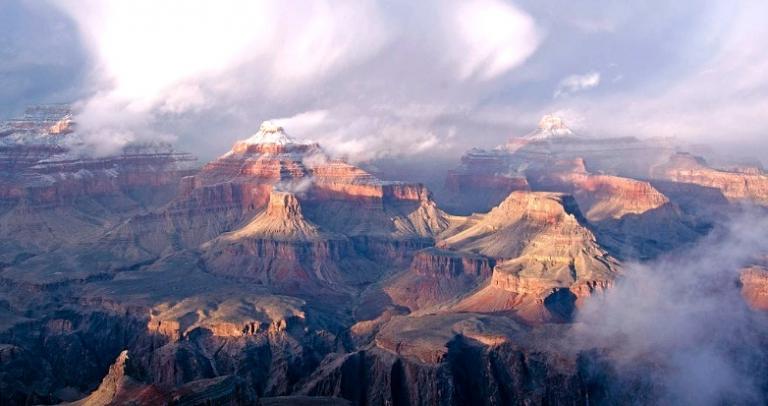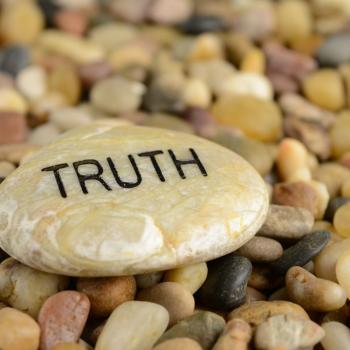
We are accustomed to viewing conscience in terms of right and wrong. Definitions of conscience refer again and again to the moral sphere and there is today the widespread assumption that the moral strictures dictated by conscience are somewhat flexible, depending both on the historical moment and the cultural context.
So nothing much to see there–conscience is relative, more or less successfully drilled into the young to make the little savages somewhat adapted to serving the greater good.
But these attitudes and opinions debase something that is of another quality altogether. Sixth-century Abba Dorotheus called conscience a divine faculty, “more alive and splendid than a spark, placed in human beings by God to illuminate the spirit….” We will find without fail that the Lord’s Prayer is an awakener of this divine faculty.
As we listen to the prayer, watching in an attitude of confidence and dependence, we are in the present moment, and at the very source of the impulses alive within us. It is in the light of conscience that we are granted the ability to see whether these impulses flowing within us are leading us toward relationship with the living Word or toward a narrow self-sufficiency.
Conscience is self-knowledge under the gaze of God. It is an inner searching that asks, “Where are you?” We can neither hide from this gaze, nor be deaf to the question. Moment by moment this searching reveals us to ourselves. We become a wide arena where more of who we are can be seen.
A nascent fear of seeing ourselves, or of being seen, can be quite subtle. But there is no need to change before we come to him: it is he that is waiting to change us. This is a hard-won insight. We are accustomed, more, addicted, to doing, to self-reliance.
But it is obedience that is asked of us in the prayer, and the divine faculty of conscience tells us whether we obey or rebel. We may for example sense dimly that we do not conform to the Word of God as revealed in the prayer. As our encounter grows deeper, perception is sharpened and we see more clearly who we are and who we are called to be.
There is a resistance to having this disparity exposed, revealed under a holy and implacable light. We pray, “Thy kingdom come,” but are we ready to receive it? We ask forgiveness as we forgive others, but we may become aware of an entrenched attitude of resentment, a habit of harboring bitterness against those who have offended us, both those near and those whose actions we deplore from afar.
Vivifying Remorse
The resistance to allowing these observations to appear to us is often unconscious, but such evasion is one of the underlying attitudes that prevent us from listening with full attention to the Lord’s Prayer. We may recoil from what we see, but when sensed attentively in prayer this judgement does not condemn us but instead alerts us to what we lack. It creates not guilt, but a vivifying remorse.
And this is the change the prayer brings about in us: it leads not to improvement but to metanoia, repentance, a radical uprooting and reorientation at the very center of the Christian path. When our listening shows us how far we are from being who the prayer calls us to be, we are allowing the prayer to act upon us. We are no longer resisting. We are witnessing ourselves from an entirely new perspective from which judgement is irrelevant.
Attending to the Lord’s Prayer in the light of conscience has moved us from one level to another, where such vision is possible. In this state we do not judge ourselves and feel guilty. Instead we see ourselves and are seen; both sense our need for mercy and receive it.
















